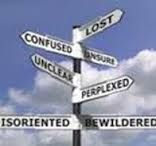Addiction
What Should You Do When Your Judgment Is Impaired?
When your ability to act in your best interests is compromised, you need a plan.
Posted November 22, 2013

There’s a supreme irony here. If your judgment is temporarily impaired, then—now afflicted with such a deficit—how could you possibly know it was impaired? And realistically, how could you even be expected to act prudently in a state where cautiousness or circumspection may totally elude you?
These are tough questions. But still, it’s unquestionably true that at one time or another all of us have found ourselves in such an untenable situation. In fact, if you look at some of the worst decisions you’ve ever made, did you not make them when your common sense was, well, “offline”? Times when you just couldn’t access the knowledge or past experience that, doubtless, would have let you know that you were about to step on a land mine—or fall headfirst over a precipice? In other words, there are various circumstances when you should have known better than to say or do something that almost certainly would get you into trouble. But in that crucial instant, you didn’t . . . or couldn’t.
So how can you avoid the pitfalls that your momentarily “logged off” mind may topple you into (as in, “What in the world were you thinking of when you did that?!”)?
The first thing to do is determine your personal risk factors for such a lapse in judgment. Traditional twelve-step programs for addiction—each in their own way focusing on what can catapult an individual back into their dysfunctional behavior—employs the term HALT to abort the downwards progression. This useful acronym alludes to the four main threats to maintaining abstinence from one’s drug of choice. That is, it’s essential for the addict to be mindful of the contingencies most commonly linked to losing control and resorting, yet again, to one’s particular addiction. So, to “unpack” the acronym, the “H” in HALT stands for getting too Hungry, the “A” for becoming too Angry, the “L” for feeling too Lonely, and the “T” for being in a state of fatigue—that is, too Tired.

In such situations, it’s crucial to mindfully “halt” (or stop in your tracks), and to contemplate what’s going on inside yourself. For when you’re in any of these negative states, you’re at increased risk for relapsing back into your addiction (whether it’s related to a substance, activity, or an unhealthy, harmful relationship). In such hazardous moments, recovering addicts are advised to immediately get in touch with their sponsor or another program member, or to go to a 12-step meeting—and, if possible, both.
But the great majority of us aren’t members of a 12-step program—either because the religious dogma usually attached to it doesn’t much appeal to us, or (more likely) because our problems don’t really pertain to addiction. Still, the HALT model, even though it doesn’t address all the problematic situations we’re vulnerable to, represents a good starting point. If we can become more aware of just what mental or emotional states put us at risk for acting foolishly, recklessly, or otherwise ill-advisedly, we may be able to avoid doing something we’ll later regret. Consequently, it’s helpful to make a list of what—for us personally—exemplify cues or clues that we’re in danger of acting contrary to our best interests. And then to determinedly revisit this list with sufficient frequency that it enters our head almost automatically before our judgment becomes so clouded that it’s no longer to be trusted.
For this self-protective internal mechanism to work, we need to maintain at least a glimmer of self-recognition when we’re in a mental—or emotional—state that threatens to vex us with sudden amnesia for our well-memorized (i.e., overlearned) catalog of cautions. Which is to say that we have to be on guard for those times, people, and places when our optimal cerebral functioning may become compromised. Situations in which our higher neo-cortical operations are beginning to falter and our far more primitive reptilian (or "dinosaur") brain is on the verge of taking over.
Of course, if in such cases we have a “back up,” we’re that much more likely to withstand any internal pressure to act contrary to our better judgment. So you might think of giving a copy of your list of hazardous situations to a trusted friend, spouse, or parent(s), or in certain instances, your son or daughter. If your emotions are so strong that they’re beginning to overwhelm you—if you’re well on your way to tumbling down your own private rabbit hole—then there’s a good chance that the other person, forewarned of your susceptibilities and “authorized” to act on your behalf, can catch you before you fall. Similar to sponsors in 12-step programs, they might prevent you from doing something that could return to haunt you.

So, once you’re able to identify the precipitants (or “usual suspects”) of past imprudences or indiscretions, it’s wise to let trusted others know about them. And your vulnerability may go well beyond your being in a state of excess hunger, anger, loneliness, or tiredness. In fact, if you’re in any heightened emotional state, your ability to accurately evaluate your situation will be weakened. For example, if you’re extremely anxious you may be tempted to avoid dealing with something that’s critical to handle, or to do something impulsive that could make matters much worse. If you’re overcome with anger, you may be sorely tempted to verbally strike out at someone, which could do irreparable damage to the relationship—or maybe get you fired. And if you’re depressed to the point of being suicidal, without altering your catastrophic thoughts or talking to someone who can offer you sympathy and reassurance, your very life may be at stake.
It’s now established scientific fact that emotions must come into play if you’re to intelligently decide among various alternatives, or be sufficiently motivated to take action on things affecting your welfare. And your emotions, at least those experienced to a mild or moderate degree, typically guide your behavior in positive ways. But whenever your emotions are so pronounced—and stressful—that they literally preempt your rational mind, you need to “retreat” to your list, stopping (or “halting”) yourself in your mental/emotional tracks. Then you can work on productively modifying your negatively distorted self-talk. Or, if that’s no longer feasible, contact a friend or engage in a distracting activity that will lessen your anxiety, anger, guilt, depression, humiliation, or shame.
Finally, if your problems are related to an addiction and you’re about to succumb to your drug of choice, or are already “under the influence,” you need to access something deep inside yourself to circumvent further craving or use—or get in touch with an understanding, compassionate person or professional to help you better cope with your temporary crisis. At times when you can no longer trust yourself, you need to have enough “sanity” left to reach out to another whom you can trust.
Remember, it’s okay to make mistakes. That’s inevitable, and it’s also how you learn to do better next time. But it’s less acceptable to continue to make the same mistakes once you’ve learned what caused them initially. So when your judgment is beginning to go south, look to your list to locate the origin of its degradation. Then do what’s needed to reverse direction.
NOTE: If you think any of the ideas in this piece might be of interest to others, please consider sending them the link. If, additionally, you’d like to explore other posts I’ve done for Psychology Today, click here.
© 2013 Leon F. Seltzer, Ph.D. All Rights Reserved.
---I invite readers to join me on Facebook, and to follow my miscellaneous musings on Twitter.




